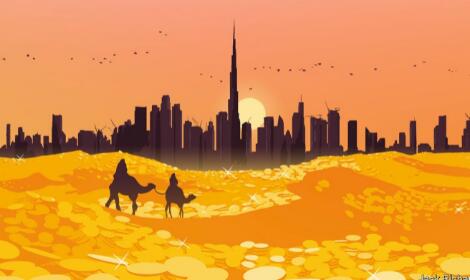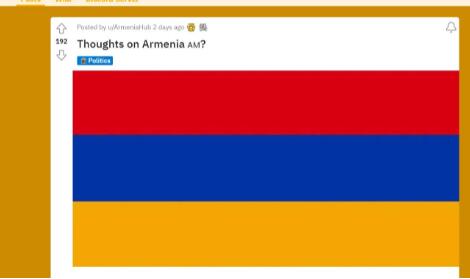为什么理解中东的地缘政治如此困难?
正文翻译

Why it is so difficult to understand geopolitics from the middle east?
为什么理解中东的地缘政治如此困难?

Why it is so difficult to understand geopolitics from the middle east?
为什么理解中东的地缘政治如此困难?
评论翻译
Orem Frien
There are several reasons that people outside of the Middle East and North Africa (MENA) find it difficult to understand MENA culture and particularly MENA politics. Some of those that come to mind for me:
1) Multi-Sided Conflicts: In most regions of the world, but especially in the West, a conflict typically just has two sides. For example, World War II was fought by the Axis Powers (Nazi Germany, Fascist Italy, Imperial Japan, and their allies) against the Allied Powers (USSR, UK, USA, and their allies). If someone was fighting against the Axis, he was an Ally, no matter how tenuous his connections to the main groups were. If someone was fighting the Allies, he was an Axis. This didn’t mean that all of the Axis or all of the Allies saw eye to eye with each other; the USSR and USA saw their relations deteriorate after defeating Nazi Germany, but during the conflict, everybody stayed on one side or the other. One “side” may have over 100 different operating groups and nations, but they all fight together or in parallel.
中东和北非(MENA)以外的人很难理解中东和北非的文化,特别是政治,这有几个原因。我想到的是:
一. 多边冲突:在世界上大多数地区,特别是在西方,冲突通常只是双边。例如,第二次世界大战时轴心国(纳粹德国、法西斯意大利,帝国主义日本以及他们的盟友)与盟军(苏联、英国、美国和他们的盟友)之间的战争。如果一个国家在与轴心国作斗争,他就是盟军无论与大组织的联系有多微弱。反之亦然。这并不代表轴心国之间或盟军之间都关系融洽。在打败纳粹德国后,苏联和美国的关系恶化,但在冲突中,所有人都站在一方或另一方。“一方”可能有超过100个不同的行动组织和国家,但他们都是一起或并行作战的。
That’s not the case in the Middle East. We don’t exclusively have these two-sided conflicts. We have three-sided conflicts (like the Lebanese Civil War). We have four-sided conflicts (like the Syrian Civil War). The major geopolitical struggle for influence in the Middle East is widely perceived as a power play between five nations: Turkey, Iran, Saudi Arabia, Israel, and Egypt. In these three-sided, four-sided, and five-sided conflicts, not only do the major players have subordinates who join alongside them, but the major players often court their adversaries to attack their other adversaries.
One particularly strange moment for me was after one of the Iraqi elections, I saw Moqtada al-Sadr and Iyad Allawi talking casually outside of parliament. The two of them were each leaders of different political parties and were considering forming a coalition. This in itself is not strange; political leaders form coalitions all of the time. However, al-Sadr had previously been behind two well-known assassination attempts on Allawi’s life (both obviously unsuccessful). That the two of them would just talk like normal politicians when they have such longstanding grievances is something that Non-MENA People who aren’t used to multi-sided conflicts where parties that absolutely hate each other will team up to go against other adversaries are completely confused by this behavior.
中东的情况并非如此。我们并不只存在这种双方的冲突,我们有三方冲突(如黎巴嫩内战),我们有四方冲突(比如叙利亚内战)。人们普遍认为,中东地区争夺影响力的主要地缘政治斗争是五个国家之间的权力博弈:土耳其、伊朗、沙特阿拉伯、以色列和埃及。在这些三方、四方和五方的冲突中,主要的参与者不仅有与他们并肩作战的下属,而且主要的参与者通常会拉拢他们的对手去攻击其他对手。
对我来说,一个特别奇怪的时刻是在伊拉克的一次选举后,我看到穆克塔达·萨德尔和伊亚德·阿拉维在议会外随意交谈。他们两人都是不同政党的领导人,正在考虑组建联合政府。这本身并不奇怪;政治领导人一直都在组建联盟。然而,萨德尔此前曾策划过两次著名的阿拉维暗杀行动(显然都失败了)。当他们长期积怨时,俩人却像正常的政治家一样对话,这是非中东地区的人不习惯的多边冲突,双方绝对厌恶对方,却会联合起来对抗其他对手,这是完全困惑的行为。
2) Nested Conflicts: This exists in other areas of the world, but is part of MENA to a far higher degree than most other places. A “nested conflict” is when conflicts exist almost like a Matryoshka doll set where one conflict will actually sit within a larger conflict that will sit within a larger conflict. Another form of nested conflicts are when multiple disparate individual conflicts are actually part of a larger international cold war. Westerners and Eurasians may be more familiar with this from the Cold War days. The “hot war” in Vietnam, the “hot war” in Korea, and the “hot war” in Angola, were all nested into the larger Cold War between the US and USSR. So, even though they had local factors and issues, they are not strictly local disputes.
A version of the former “Matryoshka-style” of nested conflicts would be:
Conflicts between local Israeli Settlers and Palestinian Civilians, that nests into
The wider Israeli-Palestinian Conflict between police officers, soldiers, paramilitaries, and terrorists, that nests into
The wider Arab-Israeli Conflict between the States of the Arab League and Israel over military, diplomatic, and economic channels, that nests into
The wider Islamic Boycott of Israel led by the Organization of Islamic Cooperation.
二. 嵌套冲突:这种冲突在世界其他地区也存在,但它是中东和北非地区的一部分,程度远远高于大多数其他地区。“嵌套冲突”是指冲突几乎像套娃一样存在,其中一个冲突实际上存在于更大的冲突中,而更大的冲突又存在于更大的冲突中。另一种形式的嵌套冲突是,多个完全不同的个体冲突实际上是更大的国际冷战的一部分。西方人和欧亚人可能更熟悉冷战时期的这一点。越南的“热战”、朝鲜的“热战”和安哥拉的“热战”,都是美苏之间更大的冷战的一部分。所以,即使他们有当地的因素和问题,他们也不是严格意义上的地方纠纷。
前一种嵌套冲突的版本如下:
当地以色列定居者和巴勒斯坦平民之间的冲突;
更广泛的巴以冲突发生在警察,士兵,准军事组织和恐怖分子之间;
阿拉伯联盟国家和以色列之间在军事、外交和经济渠道上的更广泛的阿以冲突;
由伊斯兰合作组织领导的更广泛的伊斯兰抵制以色列运动。
Note how at each level, the way the conflict manifests differs. Note how at each level the new larger conflict, subsumes the smaller conflict and attentions of the parties change. At each level of the conflict, something different is happening, and yet, all of these different scopes of conflict in the “nest” need to be understood to grasp the full conflict.
A version of the latter “Cold-War-style” of nested conflicts would be how Iran and Saudi Arabia are fighting proxy wars in (1) Syria - with Iran supporting Assad and Hezbollah and Saudi Arabia supporting the Jubhat an-Nusra and, possibly, Islamic State, (2) Iraq - with Iran supporting Shiite militias and the Republican government and Saudi Arabia supporting Sunni Fedayeen, and (3) Yemen - with Iran supporting the Houthis and the Saudis supporting the South Yemen government. Each of these conflicts in Syria, Iraq, and Yemen has local issues that are the source of the conflict, but regional powers Iran and Saudi Arabia are using these conflicts as proxy wars to avoid a direct conflict between them.
注意,在每个层次上,冲突的表现方式是不同的。注意在每一个层次上,新的更大的冲突是如何包含更小的冲突的,各方的注意力也在变化。在冲突的每个层次上,都会发生一些不同的事情,然而,需要理解“嵌套”中所有这些不同范围的冲突,以掌握整个冲突的全景。
后一种“冷战式”的嵌套冲突的一个版本是,伊朗和沙特阿拉伯如何在叙利亚打代理人战争。
1. 伊朗支持阿萨德和真主党,沙特阿拉伯支持朱巴特-努斯拉阵线,可能还支持伊斯兰国。
2. 伊拉克境内,伊朗支持什叶派民兵,共和党政府,沙特阿拉伯支持逊尼派游击队。
3. 也门境内,伊朗支持胡塞武装,沙特支持南也门政府。叙利亚、伊拉克和也门的这些冲突都有当地问题,这些问题是冲突的根源,但地区大国伊朗和沙特阿拉伯正在利用这些冲突作为代理人战争,以避免它们之间的直接冲突。
3) Different Value Sets: The MENA region has a very different history and expectations of what people want than Westerners are often familiar with. In the West, the key value is individualism and the key goal of society and economics is to provide the greatest pleasure in this world. The MENA region is not motivated by individualism, but rather by tribal/ethnic loyalties and is not motivated by pleasure-seeking, but by honor-seeking. Things that look wholly irrational from an individualist and/or pleasure-seeking perspective make perfect sense from a tribal/ethnic or honor-seeking perspective.
One of the clearest examples of this was during the trial of Saddam Hussein in 2006. Iraqis and other Arabs who had been swearing up and down that Saddam was a horror-show somehow changed their tune when he was on trial and considered him a martyr. From a Western sensibility this seems ridiculous. There was no evidence that Saddam had not performed the acts of repression that he was known for and the Iraqis and Arabs who flipped perspective did not claim that the repression didn’t happen.
三. 不同的价值观:中东和北非地区的历史和人们的期望与西方人所熟悉的截然不同。在西方,主要的价值是个人主义,社会和经济的主要目标是在这个世界上提供最大的快乐。中东和北非地区的动机不是个人主义,而是部落/种族忠诚,不是追求享乐,而是追求荣誉。从个人主义者和/或寻求快乐的角度看完全不合理的事情,从部落/种族或寻求荣誉的角度看完全有意义。
这方面最明显的例子之一是2006年萨达姆·侯赛因受审期间。伊拉克人和其他阿拉伯人一直发誓说萨达姆是个恐怖分子,但当他受审时,他们的态度不知怎么地改变了,把他视为烈士。从西方人的感性来看,这似乎很荒谬。没有证据表明萨达姆没有实施过他知晓的镇压行动,反过来说,伊拉克人和阿拉伯人也没有声称镇压没有发生过。
Saddam was a criminal and now he was being sentenced for the crimes committed. However, what Westerners did not realize what that the switch that flipped was one of honor. It was not the Saddam was somehow innocent, but how dare the Americans, a foreign people, judge one of Iraq’s sons. If anyone is to deal with Saddam, it should be an Iraqi affair. Even though the judge was Iraqi, the testimony was all in Arabic, and US soldiers were not in the courtroom, the aegis of American protection was on the court and, therefore, it was an “American decision”. For resisting the American “imposition” of doing what Iraqis would have done anyway, for standing up against the violation of Iraq’s honor, Saddam became a martyr.
Another massively different value set that Westerners and Far Easterners have trouble understanding is the strong belief in Paradise that motivates Jihadists. For some reason, Westerners and Far Easterners have a hard time believing that fundamentalist Muslims literally believe in a Paradise that they will go to after they die. Let me assure you; those beliefs are very real. They know they are going to Paradise in the same way that you know you are going to die without food, water, and shelter. This is not a pleasant thought or a dream, but a certainty. And when you take fundamentalist Muslims at their word, the horrors of Islamic State and other Jihadist organizations make perfect sense; they are doing what they need to do to get into Paradise.
萨达姆是一个罪犯,现在他因所犯的罪行而被判刑。然而,西方人没有意识到的是,态度的转变与荣誉有关。这并不是说萨达姆是无辜的,但是美国人,一个外国人,怎么敢审判伊拉克的儿子。如果有人要对付萨达姆,那应该是伊拉克的事情。尽管法官是伊拉克人,证词都是用阿拉伯语说的,美国士兵也没有出现在法庭上,但美国影响力却在法庭上游荡,因此,这是一个“美国的决定”。
为抵抗美国“强行”做的事,而这些事伊拉克人无论如何都会去做,也为反抗对伊拉克荣誉的侵犯,萨达姆成为了烈士。
西方人和远东人难以理解的另一个截然不同的价值观是,对天堂的强烈信仰激励着圣战分子。出于某种原因,西方人和远东人很难相信原教旨主义穆斯林真的相信他们死后会去的天堂。让我向你保证;这些信念是非常真实的。他们知道他们会去天堂,就像你知道你会死于没有食物、水和住所一样。这不是一个愉快的想法或梦想,而是一件必然的事。当你相信原教旨主义穆斯林的话,伊斯兰国和其他圣战组织的恐怖是完全说得通的了;他们只是在做他们需要做的事情,以便进入天堂。
4) Different Languages: The major languages of the Middle East: Arabic, Turkish, and Persian are all very different in lexicon from Western languages and from each other. It makes their material harder to access and interpret for Non-MENA People.
5) Multilayered Identities: MENA People tend to have four different identity markers for communal organization and this is something that Westerners also have, but don’t notice as readily.
Nationality: This is the passport you carry and the government whose soldiers protect you.
Tribe/Ethnicity: This is socio-cultural and linguistic group from which you have ancestry.
Religion: This is the set of supernatural beliefs you have.
Race: This is the pigment color of the skin you have.
The reason that MENA People pay much more attention to these elements is that all of them factor quite strongly into a person’s method for interacting with the world. (In fact, race is probably the weakest.) By contrast, in the West, tribe/ethnicity is severely downplayed and nationality moves into that territory. Religion is also a “personal choice” in the West while it is a social marker in MENA, just like race is a social marker in the West and not a “personal choice”.
四、语言不同:中东的主要语言——阿拉伯语、土耳其语和波斯语在词汇上与西方语言以及彼此之间都有很大的不同。这使得非中东和北非地区的人难以获取和解读他们的材料。
五、多层身份认同:中东与北非的人倾向于有四个不同的公共组织身份标记,这点西方人也有,但不容易注意到的东西。
1. 国籍:这是你的护照,它的士兵保护着你。
2. 部落/种族:这是你的祖先所在的社会文化和语言群体。
3. 宗教:这是你拥有的一系列超自然信仰。
4. 种族:这是你皮肤的色素颜色。
中东和北非地区的人们之所以更加关注这些因素,是因为它们都在一个人与世界互动的方式中起着非常重要的作用。(事实上,种族可能是最弱的。) 相比之下,在西方,部落/种族被严重淡化,民族进入了这个领域。宗教在西方也是一种“个人选择”,在中东和北非是一种社会标记,就像种族在西方是一种社会标记,而不是一种“个人选择”。
For example, I am (1) Iraqi (my parents) / American (me), (2) Assyrian, (3) Church of the East (by practice) / Atheist (by belief), and (4) Olive-toned. I share experiences with Iraqis that are different than the experiences I share with other Assyrians. My Assyrian experiences politically are different than those in the Church. My Assyrian-ness matters in a way that a German-American’s German-ness really doesn’t. I am part of the “Assyrian World” and how Non-Assyrians view Assyrians. I don’t choose that box; not that I’m unhappy with it, but I didn’t choose it.
The reason this is relevant is because, often times, the behavior that tears a country apart is because two tribes in the same country and following the same religion are fighting each other. The Clan Loyalty is what is causing problems between “co-citizens” of the same nationality. Reporters often try to simplify it as a religious difference, but religion does not tell the whole story. For example, in southern Iraq, which is overwhelming Shiite Muslim Arab, there were numerous conflicts. Most of these were between different Shiite Muslim Arab Tribes and the newscasters did not understand why Shiite Muslim Arabs would be killing each other in a “religious” conflict. It’s because there was a tribal conflict going on near An-Najaf, for example, but a religiously-aligned tribal conflict going on in Ba’qubah and other parts of the Sunni Triangle in the center of the country. Religion explained the Ba’qubah conflict nicely, but not the An-Najaf conflict and that’s the only story that the newscasters were ever told.
例如,我:
1. 伊拉克人(我父母)/美国人(我),
2. 亚述人,
3. 东方教会(实践)/无神论者(信仰)
4. 橄榄肤色。
我与伊拉克人分享的经历与我与其他亚述人分享的经历不同。我在亚述的政治经历与在教会的不同。我的亚述人身份在某种程度上与德裔美国人的德国身份无关。我是“亚述人世界”的一部分,以及非亚述人如何看待亚述人。
原因在于这些因素是相互关联的,因为,通常情况下,分裂一个国家的行为是由于同一国家的两个部落,信仰同一宗教之间的相互争斗。宗族忠诚是导致同一国籍的“公民”之间出现问题的原因。记者们常常试图将其简化为宗教差异,但宗教并不能说明一切。例如,在什叶派穆斯林阿拉伯人占绝大多数的伊拉克南部,发生了许多冲突。这些事件大多发生在不同的什叶派穆斯林阿拉伯部落之间,新闻播音员不明白为什么什叶派穆斯林阿拉伯人会在一场“宗教”冲突中互相残杀。这是因为纳查夫(伊拉克一地名)附近发生的是部落冲突,同理,在巴库巴和伊拉克中部逊尼派三角地区发生的是同派宗教内的部落冲突。
Philip Pillari
I've taken two courses that looked extensively into the region's geopolitics, and I've done extensive research for several projects in those courses. I've learned one thing:
The Middle East is a quagmire.
I'll go one by one through the region's biggest players to give a clearer understanding.
Turkey: a repressive regime that is fighting ethnic separatists in the east while having Syria on the Southern border.
Syria: a failed state that has been fighting with itself and terrorists for this entire decade.
Lebanon: a partly functioning democracy that has terrorists owning 15 seats in their parliament.
Israel: a country that is dealing with enemies throughout the region with terrorists surrounding it on the east and west.
Iraq: a state that deposed its despotic leader only to be overrun by terrorists while also dealing with ethnic separatists in the north.
Iran: a state run by theocratic madmen who have been described as Hitler of the Middle East who also have ethnic separatists the northwest.
Saudi Arabia: a state also run by theocratic madmen who kill journalists in their spare time.
And all that's not including the horror shows going on in Qatar, Yemen, and Afghanistan.
It would take me hours to actually go in depth about the challenges the Middle East faces. You not understanding their geopolitics is fine.
我选修了两门广泛研究该地区地缘政治的课程,并为这些课程中的几个项目做了广泛的研究。我学到了一件事:
中东是一个泥潭。
我将逐一介绍该地区最大的参与者,以提供更清晰的理解。
土耳其:一个镇压性政权,在东部与民族分裂分子作战,同时在南部与叙利亚接壤。
叙利亚:一个失败的国家,在过去的十年里一直在与自己和恐怖分子斗争。
黎巴嫩:一个部分运作的民主国家,恐怖分子在其议会中拥有15个席位。
以色列:一个在整个地区都在对付敌人的国家,它的东西周围都有恐怖分子。
伊拉克:这个国家推翻了专制的领导人,结果却被恐怖分子占领,同时还要应对北部的民族分裂分子。
伊朗:一个由神权狂人统治的国家,他们被称为中东的希特勒,在西北部也有民族分裂分子。
沙特阿拉伯:一个同样由神权统治的疯子统治的国家,他们在记者的业余时间杀害记者。
这还不包括在卡塔尔、也门和阿富汗发生的恐怖事件。
我要花好几个小时才能真正深入探讨中东面临的挑战。你不了解他们的地缘政治很正常。
Mohammad Jaafar
you are an answer to the question, you yourself prove that you don’t understand anything about the Middle east.
你就是问题的答案,你自己就证明了你对中东一无所知。
Oded Ben-Josef
Because they are very complex and based on a multitude of ethnicities and a puzzle of identity politics and rivalries. What doesn’t help is that the world media doesn’t like to portray this region in a balanced, factual way.
Why? The reasons are complex. Firstly, the despair and grass-rooted repression in most of the Middle East, are too dark and hopeless for most progressive minds to truly grasp; so perhaps western editors are frightened that if they present the situation as it is, it will be too sad to generate clicks. Easier solutions are preferred: blame one or two elements for all the suffering, this sounds simpler and more optimistic. Just pressure Israel to behave and the U.S. to stop meddling, and all will be well. Progressive bedtime stories are an easier sell.
因为它们非常复杂,基于众多的种族以及身份政治和竞争。同时在理解他们的过程中雪上加霜的是是,世界媒体不喜欢以一种平衡的、真实的方式来描述这个地区。
为什么?原因很复杂。首先,中东大部分地区的绝望和草根压迫太黑暗和无望,大多数进步的头脑无法真正把握;因此,也许西方编辑们害怕,如果他们如实报道情况,就会因为太过悲伤而无法获得点击量。
更简单的解决方案更受青睐:将所有的痛苦归咎于一两个因素,这听起来更简单,也更乐观。只要向以色列施压,让它规规矩矩,让美国停止干预,一切都会好起来的。循序渐进的睡前故事更容易让人接受。
Secondly, in many cases, the elements responsible for many atrocities and repression in the Mideast, are those that are beyond reproach in the progressive politically correct mindset. Only white colonial forces can be blamed, the rest are viewed as naive children, victims of western evil. The fact that there is also lots of eastern evil, and that Arab governments are sovereign and should be held responsible just like western governments are, contradicts progressive thought. Progressives believe in fairy tales based on the “positive discrimination” principle. But, just because an eastern nation was sinned against in the past, it doesn’t mean they should be absolved from western judgement for ever and ever. The Jews were sinned against in the Holocaust, and this doesn’t seem to absolve them of much, only 70 years later. Positive discrimination is a rather patronizing, damaging and racist view, even if well-intentioned. Any type of discrimination is always wrong, and two wrongs don’t correct a right and never will.
Thirdly, it takes courage to cover the Middle East factually, because many regimes there will take vengeance against journalists who don’t toe the line, physically or economically (i.e. deprive them of future work if they don’t lick the boots of the oppressive regime fast enough). Usually, most editors and journalists aren’t up for any bravery medals.
其次,在许多情况下,对中东许多暴行和镇压负责的因素是那些在进步的政治正确思维中无可指责的人。只有白人殖民势力可以受到指责,其余的都被视为天真的孩子,西方邪恶的受害者。
事实上,也有很多东方的邪恶,阿拉伯政府拥有主权,应该像西方政府一样承担责任,但这与进步思想相矛盾。进步主义者相信基于“积极歧视”原则的童话。但是,仅仅因为一个东方国家在过去被冒犯了,这并不意味着他们应该永远从西方的审判中被赦免。
犹太人在大屠杀中受到了迫害,但这似乎并不能为他们开脱多少罪,仅仅在70年后。积极的歧视是一种相当傲慢、破坏性和种族主义的观点,即使是出于好意。任何类型的歧视都是错误的,两个错误不能纠正一个正确,也永远也不能。
第三,真实地报道中东新闻需要勇气,因为那里的许多政权会对那些身体上或经济上不遵守规定的记者进行报复。例如,如果他们不尽快讨好专制政权,就会剥夺他们未来的工作机会。通常情况下,大多数编辑和记者都不会获得任何勇敢奖章。
There are several reasons that people outside of the Middle East and North Africa (MENA) find it difficult to understand MENA culture and particularly MENA politics. Some of those that come to mind for me:
1) Multi-Sided Conflicts: In most regions of the world, but especially in the West, a conflict typically just has two sides. For example, World War II was fought by the Axis Powers (Nazi Germany, Fascist Italy, Imperial Japan, and their allies) against the Allied Powers (USSR, UK, USA, and their allies). If someone was fighting against the Axis, he was an Ally, no matter how tenuous his connections to the main groups were. If someone was fighting the Allies, he was an Axis. This didn’t mean that all of the Axis or all of the Allies saw eye to eye with each other; the USSR and USA saw their relations deteriorate after defeating Nazi Germany, but during the conflict, everybody stayed on one side or the other. One “side” may have over 100 different operating groups and nations, but they all fight together or in parallel.
中东和北非(MENA)以外的人很难理解中东和北非的文化,特别是政治,这有几个原因。我想到的是:
一. 多边冲突:在世界上大多数地区,特别是在西方,冲突通常只是双边。例如,第二次世界大战时轴心国(纳粹德国、法西斯意大利,帝国主义日本以及他们的盟友)与盟军(苏联、英国、美国和他们的盟友)之间的战争。如果一个国家在与轴心国作斗争,他就是盟军无论与大组织的联系有多微弱。反之亦然。这并不代表轴心国之间或盟军之间都关系融洽。在打败纳粹德国后,苏联和美国的关系恶化,但在冲突中,所有人都站在一方或另一方。“一方”可能有超过100个不同的行动组织和国家,但他们都是一起或并行作战的。
That’s not the case in the Middle East. We don’t exclusively have these two-sided conflicts. We have three-sided conflicts (like the Lebanese Civil War). We have four-sided conflicts (like the Syrian Civil War). The major geopolitical struggle for influence in the Middle East is widely perceived as a power play between five nations: Turkey, Iran, Saudi Arabia, Israel, and Egypt. In these three-sided, four-sided, and five-sided conflicts, not only do the major players have subordinates who join alongside them, but the major players often court their adversaries to attack their other adversaries.
One particularly strange moment for me was after one of the Iraqi elections, I saw Moqtada al-Sadr and Iyad Allawi talking casually outside of parliament. The two of them were each leaders of different political parties and were considering forming a coalition. This in itself is not strange; political leaders form coalitions all of the time. However, al-Sadr had previously been behind two well-known assassination attempts on Allawi’s life (both obviously unsuccessful). That the two of them would just talk like normal politicians when they have such longstanding grievances is something that Non-MENA People who aren’t used to multi-sided conflicts where parties that absolutely hate each other will team up to go against other adversaries are completely confused by this behavior.
中东的情况并非如此。我们并不只存在这种双方的冲突,我们有三方冲突(如黎巴嫩内战),我们有四方冲突(比如叙利亚内战)。人们普遍认为,中东地区争夺影响力的主要地缘政治斗争是五个国家之间的权力博弈:土耳其、伊朗、沙特阿拉伯、以色列和埃及。在这些三方、四方和五方的冲突中,主要的参与者不仅有与他们并肩作战的下属,而且主要的参与者通常会拉拢他们的对手去攻击其他对手。
对我来说,一个特别奇怪的时刻是在伊拉克的一次选举后,我看到穆克塔达·萨德尔和伊亚德·阿拉维在议会外随意交谈。他们两人都是不同政党的领导人,正在考虑组建联合政府。这本身并不奇怪;政治领导人一直都在组建联盟。然而,萨德尔此前曾策划过两次著名的阿拉维暗杀行动(显然都失败了)。当他们长期积怨时,俩人却像正常的政治家一样对话,这是非中东地区的人不习惯的多边冲突,双方绝对厌恶对方,却会联合起来对抗其他对手,这是完全困惑的行为。
2) Nested Conflicts: This exists in other areas of the world, but is part of MENA to a far higher degree than most other places. A “nested conflict” is when conflicts exist almost like a Matryoshka doll set where one conflict will actually sit within a larger conflict that will sit within a larger conflict. Another form of nested conflicts are when multiple disparate individual conflicts are actually part of a larger international cold war. Westerners and Eurasians may be more familiar with this from the Cold War days. The “hot war” in Vietnam, the “hot war” in Korea, and the “hot war” in Angola, were all nested into the larger Cold War between the US and USSR. So, even though they had local factors and issues, they are not strictly local disputes.
A version of the former “Matryoshka-style” of nested conflicts would be:
Conflicts between local Israeli Settlers and Palestinian Civilians, that nests into
The wider Israeli-Palestinian Conflict between police officers, soldiers, paramilitaries, and terrorists, that nests into
The wider Arab-Israeli Conflict between the States of the Arab League and Israel over military, diplomatic, and economic channels, that nests into
The wider Islamic Boycott of Israel led by the Organization of Islamic Cooperation.
二. 嵌套冲突:这种冲突在世界其他地区也存在,但它是中东和北非地区的一部分,程度远远高于大多数其他地区。“嵌套冲突”是指冲突几乎像套娃一样存在,其中一个冲突实际上存在于更大的冲突中,而更大的冲突又存在于更大的冲突中。另一种形式的嵌套冲突是,多个完全不同的个体冲突实际上是更大的国际冷战的一部分。西方人和欧亚人可能更熟悉冷战时期的这一点。越南的“热战”、朝鲜的“热战”和安哥拉的“热战”,都是美苏之间更大的冷战的一部分。所以,即使他们有当地的因素和问题,他们也不是严格意义上的地方纠纷。
前一种嵌套冲突的版本如下:
当地以色列定居者和巴勒斯坦平民之间的冲突;
更广泛的巴以冲突发生在警察,士兵,准军事组织和恐怖分子之间;
阿拉伯联盟国家和以色列之间在军事、外交和经济渠道上的更广泛的阿以冲突;
由伊斯兰合作组织领导的更广泛的伊斯兰抵制以色列运动。
Note how at each level, the way the conflict manifests differs. Note how at each level the new larger conflict, subsumes the smaller conflict and attentions of the parties change. At each level of the conflict, something different is happening, and yet, all of these different scopes of conflict in the “nest” need to be understood to grasp the full conflict.
A version of the latter “Cold-War-style” of nested conflicts would be how Iran and Saudi Arabia are fighting proxy wars in (1) Syria - with Iran supporting Assad and Hezbollah and Saudi Arabia supporting the Jubhat an-Nusra and, possibly, Islamic State, (2) Iraq - with Iran supporting Shiite militias and the Republican government and Saudi Arabia supporting Sunni Fedayeen, and (3) Yemen - with Iran supporting the Houthis and the Saudis supporting the South Yemen government. Each of these conflicts in Syria, Iraq, and Yemen has local issues that are the source of the conflict, but regional powers Iran and Saudi Arabia are using these conflicts as proxy wars to avoid a direct conflict between them.
注意,在每个层次上,冲突的表现方式是不同的。注意在每一个层次上,新的更大的冲突是如何包含更小的冲突的,各方的注意力也在变化。在冲突的每个层次上,都会发生一些不同的事情,然而,需要理解“嵌套”中所有这些不同范围的冲突,以掌握整个冲突的全景。
后一种“冷战式”的嵌套冲突的一个版本是,伊朗和沙特阿拉伯如何在叙利亚打代理人战争。
1. 伊朗支持阿萨德和真主党,沙特阿拉伯支持朱巴特-努斯拉阵线,可能还支持伊斯兰国。
2. 伊拉克境内,伊朗支持什叶派民兵,共和党政府,沙特阿拉伯支持逊尼派游击队。
3. 也门境内,伊朗支持胡塞武装,沙特支持南也门政府。叙利亚、伊拉克和也门的这些冲突都有当地问题,这些问题是冲突的根源,但地区大国伊朗和沙特阿拉伯正在利用这些冲突作为代理人战争,以避免它们之间的直接冲突。
3) Different Value Sets: The MENA region has a very different history and expectations of what people want than Westerners are often familiar with. In the West, the key value is individualism and the key goal of society and economics is to provide the greatest pleasure in this world. The MENA region is not motivated by individualism, but rather by tribal/ethnic loyalties and is not motivated by pleasure-seeking, but by honor-seeking. Things that look wholly irrational from an individualist and/or pleasure-seeking perspective make perfect sense from a tribal/ethnic or honor-seeking perspective.
One of the clearest examples of this was during the trial of Saddam Hussein in 2006. Iraqis and other Arabs who had been swearing up and down that Saddam was a horror-show somehow changed their tune when he was on trial and considered him a martyr. From a Western sensibility this seems ridiculous. There was no evidence that Saddam had not performed the acts of repression that he was known for and the Iraqis and Arabs who flipped perspective did not claim that the repression didn’t happen.
三. 不同的价值观:中东和北非地区的历史和人们的期望与西方人所熟悉的截然不同。在西方,主要的价值是个人主义,社会和经济的主要目标是在这个世界上提供最大的快乐。中东和北非地区的动机不是个人主义,而是部落/种族忠诚,不是追求享乐,而是追求荣誉。从个人主义者和/或寻求快乐的角度看完全不合理的事情,从部落/种族或寻求荣誉的角度看完全有意义。
这方面最明显的例子之一是2006年萨达姆·侯赛因受审期间。伊拉克人和其他阿拉伯人一直发誓说萨达姆是个恐怖分子,但当他受审时,他们的态度不知怎么地改变了,把他视为烈士。从西方人的感性来看,这似乎很荒谬。没有证据表明萨达姆没有实施过他知晓的镇压行动,反过来说,伊拉克人和阿拉伯人也没有声称镇压没有发生过。
Saddam was a criminal and now he was being sentenced for the crimes committed. However, what Westerners did not realize what that the switch that flipped was one of honor. It was not the Saddam was somehow innocent, but how dare the Americans, a foreign people, judge one of Iraq’s sons. If anyone is to deal with Saddam, it should be an Iraqi affair. Even though the judge was Iraqi, the testimony was all in Arabic, and US soldiers were not in the courtroom, the aegis of American protection was on the court and, therefore, it was an “American decision”. For resisting the American “imposition” of doing what Iraqis would have done anyway, for standing up against the violation of Iraq’s honor, Saddam became a martyr.
Another massively different value set that Westerners and Far Easterners have trouble understanding is the strong belief in Paradise that motivates Jihadists. For some reason, Westerners and Far Easterners have a hard time believing that fundamentalist Muslims literally believe in a Paradise that they will go to after they die. Let me assure you; those beliefs are very real. They know they are going to Paradise in the same way that you know you are going to die without food, water, and shelter. This is not a pleasant thought or a dream, but a certainty. And when you take fundamentalist Muslims at their word, the horrors of Islamic State and other Jihadist organizations make perfect sense; they are doing what they need to do to get into Paradise.
萨达姆是一个罪犯,现在他因所犯的罪行而被判刑。然而,西方人没有意识到的是,态度的转变与荣誉有关。这并不是说萨达姆是无辜的,但是美国人,一个外国人,怎么敢审判伊拉克的儿子。如果有人要对付萨达姆,那应该是伊拉克的事情。尽管法官是伊拉克人,证词都是用阿拉伯语说的,美国士兵也没有出现在法庭上,但美国影响力却在法庭上游荡,因此,这是一个“美国的决定”。
为抵抗美国“强行”做的事,而这些事伊拉克人无论如何都会去做,也为反抗对伊拉克荣誉的侵犯,萨达姆成为了烈士。
西方人和远东人难以理解的另一个截然不同的价值观是,对天堂的强烈信仰激励着圣战分子。出于某种原因,西方人和远东人很难相信原教旨主义穆斯林真的相信他们死后会去的天堂。让我向你保证;这些信念是非常真实的。他们知道他们会去天堂,就像你知道你会死于没有食物、水和住所一样。这不是一个愉快的想法或梦想,而是一件必然的事。当你相信原教旨主义穆斯林的话,伊斯兰国和其他圣战组织的恐怖是完全说得通的了;他们只是在做他们需要做的事情,以便进入天堂。
4) Different Languages: The major languages of the Middle East: Arabic, Turkish, and Persian are all very different in lexicon from Western languages and from each other. It makes their material harder to access and interpret for Non-MENA People.
5) Multilayered Identities: MENA People tend to have four different identity markers for communal organization and this is something that Westerners also have, but don’t notice as readily.
Nationality: This is the passport you carry and the government whose soldiers protect you.
Tribe/Ethnicity: This is socio-cultural and linguistic group from which you have ancestry.
Religion: This is the set of supernatural beliefs you have.
Race: This is the pigment color of the skin you have.
The reason that MENA People pay much more attention to these elements is that all of them factor quite strongly into a person’s method for interacting with the world. (In fact, race is probably the weakest.) By contrast, in the West, tribe/ethnicity is severely downplayed and nationality moves into that territory. Religion is also a “personal choice” in the West while it is a social marker in MENA, just like race is a social marker in the West and not a “personal choice”.
四、语言不同:中东的主要语言——阿拉伯语、土耳其语和波斯语在词汇上与西方语言以及彼此之间都有很大的不同。这使得非中东和北非地区的人难以获取和解读他们的材料。
五、多层身份认同:中东与北非的人倾向于有四个不同的公共组织身份标记,这点西方人也有,但不容易注意到的东西。
1. 国籍:这是你的护照,它的士兵保护着你。
2. 部落/种族:这是你的祖先所在的社会文化和语言群体。
3. 宗教:这是你拥有的一系列超自然信仰。
4. 种族:这是你皮肤的色素颜色。
中东和北非地区的人们之所以更加关注这些因素,是因为它们都在一个人与世界互动的方式中起着非常重要的作用。(事实上,种族可能是最弱的。) 相比之下,在西方,部落/种族被严重淡化,民族进入了这个领域。宗教在西方也是一种“个人选择”,在中东和北非是一种社会标记,就像种族在西方是一种社会标记,而不是一种“个人选择”。
For example, I am (1) Iraqi (my parents) / American (me), (2) Assyrian, (3) Church of the East (by practice) / Atheist (by belief), and (4) Olive-toned. I share experiences with Iraqis that are different than the experiences I share with other Assyrians. My Assyrian experiences politically are different than those in the Church. My Assyrian-ness matters in a way that a German-American’s German-ness really doesn’t. I am part of the “Assyrian World” and how Non-Assyrians view Assyrians. I don’t choose that box; not that I’m unhappy with it, but I didn’t choose it.
The reason this is relevant is because, often times, the behavior that tears a country apart is because two tribes in the same country and following the same religion are fighting each other. The Clan Loyalty is what is causing problems between “co-citizens” of the same nationality. Reporters often try to simplify it as a religious difference, but religion does not tell the whole story. For example, in southern Iraq, which is overwhelming Shiite Muslim Arab, there were numerous conflicts. Most of these were between different Shiite Muslim Arab Tribes and the newscasters did not understand why Shiite Muslim Arabs would be killing each other in a “religious” conflict. It’s because there was a tribal conflict going on near An-Najaf, for example, but a religiously-aligned tribal conflict going on in Ba’qubah and other parts of the Sunni Triangle in the center of the country. Religion explained the Ba’qubah conflict nicely, but not the An-Najaf conflict and that’s the only story that the newscasters were ever told.
例如,我:
1. 伊拉克人(我父母)/美国人(我),
2. 亚述人,
3. 东方教会(实践)/无神论者(信仰)
4. 橄榄肤色。
我与伊拉克人分享的经历与我与其他亚述人分享的经历不同。我在亚述的政治经历与在教会的不同。我的亚述人身份在某种程度上与德裔美国人的德国身份无关。我是“亚述人世界”的一部分,以及非亚述人如何看待亚述人。
原因在于这些因素是相互关联的,因为,通常情况下,分裂一个国家的行为是由于同一国家的两个部落,信仰同一宗教之间的相互争斗。宗族忠诚是导致同一国籍的“公民”之间出现问题的原因。记者们常常试图将其简化为宗教差异,但宗教并不能说明一切。例如,在什叶派穆斯林阿拉伯人占绝大多数的伊拉克南部,发生了许多冲突。这些事件大多发生在不同的什叶派穆斯林阿拉伯部落之间,新闻播音员不明白为什么什叶派穆斯林阿拉伯人会在一场“宗教”冲突中互相残杀。这是因为纳查夫(伊拉克一地名)附近发生的是部落冲突,同理,在巴库巴和伊拉克中部逊尼派三角地区发生的是同派宗教内的部落冲突。
Philip Pillari
I've taken two courses that looked extensively into the region's geopolitics, and I've done extensive research for several projects in those courses. I've learned one thing:
The Middle East is a quagmire.
I'll go one by one through the region's biggest players to give a clearer understanding.
Turkey: a repressive regime that is fighting ethnic separatists in the east while having Syria on the Southern border.
Syria: a failed state that has been fighting with itself and terrorists for this entire decade.
Lebanon: a partly functioning democracy that has terrorists owning 15 seats in their parliament.
Israel: a country that is dealing with enemies throughout the region with terrorists surrounding it on the east and west.
Iraq: a state that deposed its despotic leader only to be overrun by terrorists while also dealing with ethnic separatists in the north.
Iran: a state run by theocratic madmen who have been described as Hitler of the Middle East who also have ethnic separatists the northwest.
Saudi Arabia: a state also run by theocratic madmen who kill journalists in their spare time.
And all that's not including the horror shows going on in Qatar, Yemen, and Afghanistan.
It would take me hours to actually go in depth about the challenges the Middle East faces. You not understanding their geopolitics is fine.
我选修了两门广泛研究该地区地缘政治的课程,并为这些课程中的几个项目做了广泛的研究。我学到了一件事:
中东是一个泥潭。
我将逐一介绍该地区最大的参与者,以提供更清晰的理解。
土耳其:一个镇压性政权,在东部与民族分裂分子作战,同时在南部与叙利亚接壤。
叙利亚:一个失败的国家,在过去的十年里一直在与自己和恐怖分子斗争。
黎巴嫩:一个部分运作的民主国家,恐怖分子在其议会中拥有15个席位。
以色列:一个在整个地区都在对付敌人的国家,它的东西周围都有恐怖分子。
伊拉克:这个国家推翻了专制的领导人,结果却被恐怖分子占领,同时还要应对北部的民族分裂分子。
伊朗:一个由神权狂人统治的国家,他们被称为中东的希特勒,在西北部也有民族分裂分子。
沙特阿拉伯:一个同样由神权统治的疯子统治的国家,他们在记者的业余时间杀害记者。
这还不包括在卡塔尔、也门和阿富汗发生的恐怖事件。
我要花好几个小时才能真正深入探讨中东面临的挑战。你不了解他们的地缘政治很正常。
Mohammad Jaafar
you are an answer to the question, you yourself prove that you don’t understand anything about the Middle east.
你就是问题的答案,你自己就证明了你对中东一无所知。
Oded Ben-Josef
Because they are very complex and based on a multitude of ethnicities and a puzzle of identity politics and rivalries. What doesn’t help is that the world media doesn’t like to portray this region in a balanced, factual way.
Why? The reasons are complex. Firstly, the despair and grass-rooted repression in most of the Middle East, are too dark and hopeless for most progressive minds to truly grasp; so perhaps western editors are frightened that if they present the situation as it is, it will be too sad to generate clicks. Easier solutions are preferred: blame one or two elements for all the suffering, this sounds simpler and more optimistic. Just pressure Israel to behave and the U.S. to stop meddling, and all will be well. Progressive bedtime stories are an easier sell.
因为它们非常复杂,基于众多的种族以及身份政治和竞争。同时在理解他们的过程中雪上加霜的是是,世界媒体不喜欢以一种平衡的、真实的方式来描述这个地区。
为什么?原因很复杂。首先,中东大部分地区的绝望和草根压迫太黑暗和无望,大多数进步的头脑无法真正把握;因此,也许西方编辑们害怕,如果他们如实报道情况,就会因为太过悲伤而无法获得点击量。
更简单的解决方案更受青睐:将所有的痛苦归咎于一两个因素,这听起来更简单,也更乐观。只要向以色列施压,让它规规矩矩,让美国停止干预,一切都会好起来的。循序渐进的睡前故事更容易让人接受。
Secondly, in many cases, the elements responsible for many atrocities and repression in the Mideast, are those that are beyond reproach in the progressive politically correct mindset. Only white colonial forces can be blamed, the rest are viewed as naive children, victims of western evil. The fact that there is also lots of eastern evil, and that Arab governments are sovereign and should be held responsible just like western governments are, contradicts progressive thought. Progressives believe in fairy tales based on the “positive discrimination” principle. But, just because an eastern nation was sinned against in the past, it doesn’t mean they should be absolved from western judgement for ever and ever. The Jews were sinned against in the Holocaust, and this doesn’t seem to absolve them of much, only 70 years later. Positive discrimination is a rather patronizing, damaging and racist view, even if well-intentioned. Any type of discrimination is always wrong, and two wrongs don’t correct a right and never will.
Thirdly, it takes courage to cover the Middle East factually, because many regimes there will take vengeance against journalists who don’t toe the line, physically or economically (i.e. deprive them of future work if they don’t lick the boots of the oppressive regime fast enough). Usually, most editors and journalists aren’t up for any bravery medals.
其次,在许多情况下,对中东许多暴行和镇压负责的因素是那些在进步的政治正确思维中无可指责的人。只有白人殖民势力可以受到指责,其余的都被视为天真的孩子,西方邪恶的受害者。
事实上,也有很多东方的邪恶,阿拉伯政府拥有主权,应该像西方政府一样承担责任,但这与进步思想相矛盾。进步主义者相信基于“积极歧视”原则的童话。但是,仅仅因为一个东方国家在过去被冒犯了,这并不意味着他们应该永远从西方的审判中被赦免。
犹太人在大屠杀中受到了迫害,但这似乎并不能为他们开脱多少罪,仅仅在70年后。积极的歧视是一种相当傲慢、破坏性和种族主义的观点,即使是出于好意。任何类型的歧视都是错误的,两个错误不能纠正一个正确,也永远也不能。
第三,真实地报道中东新闻需要勇气,因为那里的许多政权会对那些身体上或经济上不遵守规定的记者进行报复。例如,如果他们不尽快讨好专制政权,就会剥夺他们未来的工作机会。通常情况下,大多数编辑和记者都不会获得任何勇敢奖章。










